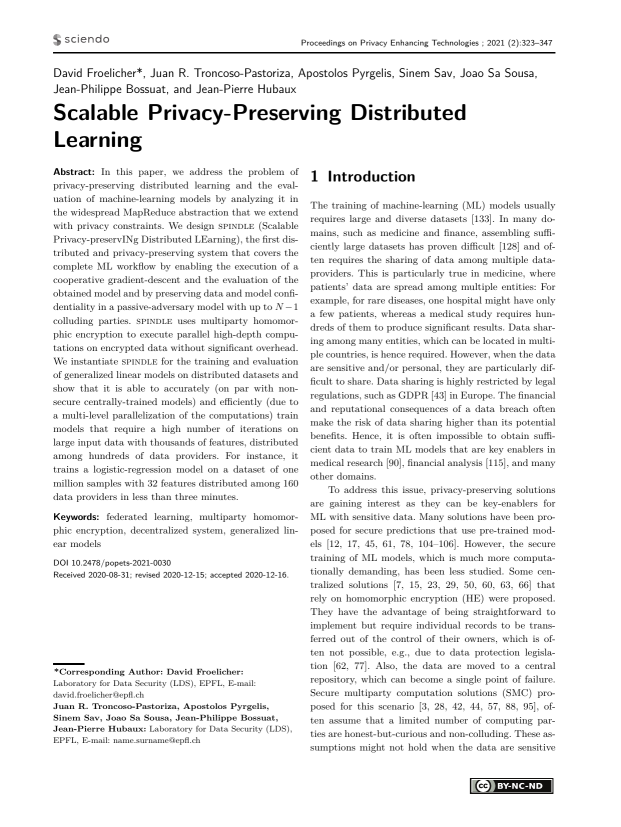Scalable Privacy-Preserving Distributed Learning
Authors: David Froelicher (Laboratory for Data Security (LDS), EPFL), Juan R. Troncoso-Pastoriza (Laboratory for Data Security (LDS), EPFL), Apostolos Pyrgelis (Laboratory for Data Security (LDS), EPFL), Sinem Sav (Laboratory for Data Security (LDS), EPFL), Joao Sa Sousa (Laboratory for Data Security (LDS), EPFL), Jean-Philippe Bossuat (Laboratory for Data Security (LDS), EPFL), Jean-Pierre Hubaux (Laboratory for Data Security (LDS), EPFL)
Volume: 2021
Issue: 2
Pages: 323–347
DOI: https://doi.org/10.2478/popets-2021-0030
Abstract: In this paper, we address the problem of privacy-preserving distributed learning and the evaluation of machine-learning models by analyzing it in the widespread MapReduce abstraction that we extend with privacy constraints. We design spindle (Scalable Privacy-preservINg Distributed LEarning), the first distributed and privacy-preserving system that covers the complete ML workflow by enabling the execution of a cooperative gradient-descent and the evaluation of the obtained model and by preserving data and model confidentiality in a passive-adversary model with up to N −1 colluding parties. spindle uses multiparty homomorphic encryption to execute parallel high-depth computations on encrypted data without significant overhead. We instantiate spindle for the training and evaluation of generalized linear models on distributed datasets and show that it is able to accurately (on par with nonsecure centrally-trained models) and efficiently (due to a multi-level parallelization of the computations) train models that require a high number of iterations on large input data with thousands of features, distributed among hundreds of data providers. For instance, it trains a logistic-regression model on a dataset of one million samples with 32 features distributed among 160 data providers in less than three minutes.
Keywords: federated learning, multiparty homomorphic encryption, decentralized system, generalized linear models
Copyright in PoPETs articles are held by their authors. This article is published under a Creative Commons Attribution-NonCommercial-NoDerivs 3.0 license.

